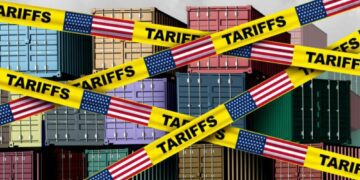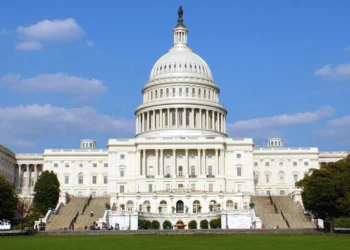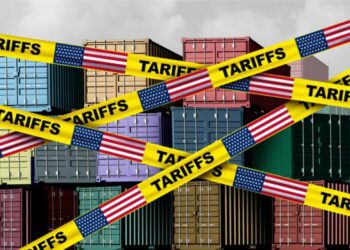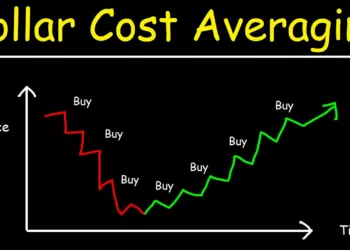Homeownership has long been considered a cornerstone of the American Dream. For many, it represents stability, financial security, and a significant investment in the future. However, recent economic trends and unforeseen expenses are casting a shadow over this once-idealized notion. In a recent CNBC video titled “Why Homeowners Are Struggling to Afford Monthly Expenses,” the stark reality facing many homeowners was laid bare. The video sheds light on the increasing costs of homeownership, particularly property taxes and homeowners insurance, and the financial strain these are placing on millions of Americans.
The Growing Burden of Property Taxes
Why Are Property Taxes Skyrocketing?
The property tax is one of the most significant expenses associated with homeownership. While these taxes have always been a known cost, the rapid increase in recent years has caught many homeowners off guard. According to the CNBC report, property taxes on the median single-family home have risen by more than 25% between 2019 and 2023. This surge is largely due to the increase in home values, which, while beneficial on paper, translates into higher taxes.
| Year | Median Home Value | Property Tax |
|---|---|---|
| 2019 | $320,000 | $6,400 |
| 2020 | $340,000 | $6,800 |
| 2021 | $370,000 | $7,400 |
| 2022 | $400,000 | $8,000 |
| 2023 | $425,000 | $8,500 |
Table 1: The correlation between rising home values and property taxes.
Regional Disparities in Property Tax Increases
Property taxes vary significantly across the United States, with some states experiencing much sharper increases than others. States like New Jersey, Connecticut, and New York have seen the highest average property tax increases, while states like West Virginia, Alabama, and Mississippi have experienced the lowest increases.
This disparity creates a challenging environment for homeowners, especially those who may have relocated from a state with lower property taxes to one with higher rates. For example, a homeowner moving from Alabama to New Jersey may face a significant shock when their property tax bill arrives.
The Hidden Costs of Property Reassessments
Local governments often reassess properties to reflect current market values, which can lead to unexpected tax hikes. Homeowners whose properties were reassessed between 2019 and 2023 saw an average increase of over $600 per year. These reassessments, while often necessary for municipalities to fund infrastructure and public services, can place an additional financial burden on homeowners.
“Property taxes rarely go down; they usually go up,” an expert in the CNBC video stated, highlighting the inevitability of these rising costs.
For homeowners feeling the strain, it’s essential to understand their rights and options. For instance, many may not realize they can challenge their property tax assessment if they believe it is inaccurate or unfair. However, this process can be time-consuming and may require legal assistance, adding another layer of complexity.
Strategies for Managing Property Taxes
Despite the challenges, there are strategies homeowners can use to manage their property tax burden:
- Challenge the Assessment: If you believe your property’s assessed value is too high, you can file an appeal with your local tax assessor’s office.
- Apply for Exemptions: Many states offer property tax exemptions for veterans, senior citizens, and low-income homeowners.
- Budget for Increases: When purchasing a home, consider the potential for property tax increases in the future and budget accordingly.
The Rising Cost of Homeowners Insurance
Understanding the Surge in Homeowners Insurance Premiums
In addition to rising property taxes, homeowners are also facing significant increases in homeowners insurance premiums. The CNBC report highlighted that the average annual homeowners insurance rates in the U.S. increased from $1,384 in 2021 to $2,377 in 2023—a staggering 72% increase in just two years.
| Year | Average Homeowners Insurance Premium |
|---|---|
| 2021 | $1,384 |
| 2022 | $1,895 |
| 2023 | $2,377 |
| 2024* | $2,500 |
Table 2: The rising cost of homeowners insurance premiums (2021-2024).
Note: 2024 value is a projected estimate.
The primary drivers of these increases are the rising costs of rebuilding homes and the growing frequency of natural disasters. Insurance companies must account for the increased risk associated with these disasters, leading to higher premiums for homeowners.
Regional Differences in Insurance Costs
Just as with property taxes, the cost of homeowners insurance can vary significantly by region. States prone to natural disasters, such as Florida, California, and Colorado, have seen some of the highest increases in insurance premiums.
For example, Florida homeowners faced an average annual insurance premium of nearly $11,000 in 2023, more than $8,600 above the U.S. average. This dramatic increase is primarily due to the state’s vulnerability to hurricanes and other extreme weather events.
The Impact of Natural Disasters on Insurance Costs
The frequency and severity of natural disasters have increased significantly in recent years, a trend that shows no sign of slowing down. Wildfires in California, hurricanes in Florida, and tornadoes in the Midwest have all contributed to the surge in insurance premiums.
“The last couple of years, we’ve seen this spike, this huge increase, and it is because we are having more natural disasters in places,” the CNBC report noted.
As insurance companies face higher payouts due to these disasters, they pass those costs on to homeowners in the form of higher premiums. Unfortunately, this trend is unlikely to reverse anytime soon, meaning homeowners must brace for continued increases in their insurance costs.
How Homeowners Can Mitigate Insurance Costs
While homeowners may feel powerless in the face of rising insurance premiums, there are steps they can take to mitigate these costs:
- Shop Around: Not all insurance companies charge the same rates. Homeowners should regularly compare quotes from different insurers to ensure they get the best deal.
- Increase Deductibles: Opting for a higher deductible can lower your monthly premium, though it means more out-of-pocket expenses in the event of a claim.
- Bundle Policies: Many insurers offer discounts for bundling homeowners insurance with other policies, such as auto insurance.
The Financial Strain on Homeowners: A Broader Perspective
The Concept of Being “House Rich, Cash Poor”
The idea of being “house rich, cash poor” has become increasingly relevant as home values rise faster than incomes. Many homeowners find themselves owning a valuable asset but struggling to cover the monthly expenses associated with it. According to the CNBC report, 82% of recent homebuyers regret their purchase, with 44% taking on additional debt to maintain their standard of living.
| Percentage of Recent Homebuyers | Regret Purchase | Taken on Additional Debt |
|---|---|---|
| 82% | Yes | 44% |
Table 3: Regrets and financial strain among recent homebuyers.
The Impact of Rising Housing Costs on Household Budgets
More than 1 in 4 homeowners with a mortgage spend over 30% of their income on housing costs, classifying them as cost-burdened. This designation means that these homeowners have less disposable income for other necessities, such as food, healthcare, and education.
The rise in housing costs, including mortgages, property taxes, and insurance, has outpaced income growth for the average consumer. This imbalance creates an affordability crisis that is particularly acute for those living in high-cost areas.
The Ripple Effect of Rising Homeownership Costs
The financial strain of homeownership doesn’t just affect individual homeowners; it has broader economic implications as well. As more homeowners struggle to meet their monthly payments, they may cut back on other spending, leading to reduced consumer demand and potentially slowing economic growth.
“Just because a person may own a valuable home doesn’t necessarily mean that they’re financially set,” the CNBC report cautioned.
For many homeowners, the dream of homeownership has become a financial burden rather than a path to wealth and stability. This reality is particularly troubling given that homeownership is often touted as the primary path to wealth creation in the U.S.
Tips for Prospective and Current Homeowners
Advice for Prospective Homeowners
For those considering purchasing a home, the CNBC report offers several crucial tips to avoid the financial pitfalls that have ensnared many current homeowners:
- Do Your Homework: Before purchasing a home, prospective buyers should thoroughly research all potential costs, including property taxes, homeowners insurance, and maintenance expenses.
- Plan for the Future: Don’t base your budget solely on current costs. Consider the potential for increases in property taxes and insurance premiums, and ensure you have a financial cushion to absorb these costs.
- Work with a Knowledgeable Realtor: A good realtor can help you navigate the complexities of home buying, including understanding local tax assessments, insurance requirements, and any potential future expenses that might arise. It’s crucial to ask your realtor the right questions, such as whether the area you’re buying in has any upcoming property reassessments or if the local government is planning infrastructure projects that might affect property taxes.
Advice for Current Homeowners Struggling with Rising Costs
For those who already own a home and are finding it increasingly difficult to manage the associated costs, there are several steps you can take to alleviate financial strain:
- Review Your Property Tax Assessment: As mentioned earlier, you can challenge your property tax assessment if you believe it’s too high. Start by visiting your county assessor’s website, which often provides the necessary resources and guidance.
- Explore Property Tax Relief Programs: Some states offer property tax relief programs for seniors, veterans, or low-income homeowners. Research to see if you qualify for any of these programs.
- Refinance Your Mortgage: If you’re struggling with high mortgage payments, consider refinancing your mortgage to lower your interest rate or extend the loan term, thereby reducing your monthly payments.
- Reevaluate Your Homeowners Insurance: If your insurance premiums have skyrocketed, it might be time to shop around for a new policy. Interview multiple insurance agents to find the best coverage at the most affordable price. Increasing your deductible can also help lower your premium, but be sure you can cover the higher out-of-pocket costs in the event of a claim.
- Cut Non-Essential Expenses: While it’s not ideal, you may need to cut back on non-essential expenses, such as dining out, entertainment, or vacations, to free up money for your housing costs.
- Seek Financial Assistance: If you’re unable to pay your mortgage or other housing-related expenses, contact your mortgage servicer as soon as possible. They may be able to offer a repayment plan, loan modification, or other assistance. Additionally, the Consumer Financial Protection Bureau (CFPB) recommends reaching out to the Department of Housing and Urban Development (HUD) to see if you qualify for any assistance programs.
The Long-Term Outlook for Homeowners
Will Homeownership Continue to Be a Viable Investment?
Given the current economic climate, many potential homebuyers are questioning whether homeownership is still a good investment. The reality is that while homeownership can still be a path to wealth creation, it is becoming increasingly important to approach it with caution and a thorough understanding of the risks involved.
The National Association of Realtors (NAR) reported that single-family homeowners accumulate an average of $225,000 in wealth from their homes over a ten-year period. However, this wealth is often tied up in the value of the home itself, meaning it isn’t liquid and can’t be easily accessed unless the home is sold or refinanced. This creates a situation where homeowners might be “house rich” but “cash poor,” struggling to cover day-to-day expenses despite owning a valuable asset.
The Future of Property Taxes and Insurance
The trends in rising property taxes and homeowners insurance premiums are unlikely to reverse in the near future. As home values continue to increase, so too will property taxes, and as natural disasters become more frequent and severe, insurance premiums will continue to rise. This means that homeowners need to be prepared for these costs to become a more significant part of their budget.
Some states have started to implement measures to protect homeowners from the most severe increases. For example, states like California and Texas have caps on how much property taxes can increase annually, while others have regulations in place to limit how much insurance premiums can rise year over year. However, these protections are not universal, and homeowners in states without such regulations may face greater financial risks.
The Role of Government and Policy in Addressing Homeowner Challenges
There is a growing recognition that policy intervention may be necessary to address the challenges faced by homeowners. Potential policy solutions could include:
- Property Tax Caps and Exemptions: Expanding property tax caps and exemptions to more states, particularly for vulnerable populations like seniors and low-income homeowners, could help mitigate the financial strain of rising taxes.
- Insurance Regulation: Strengthening regulations around homeowners insurance to prevent excessive premium increases and ensure that coverage remains affordable could provide much-needed relief for homeowners, especially in disaster-prone areas.
- Affordable Housing Initiatives: Increasing the supply of affordable housing and providing financial assistance for first-time homebuyers could help reduce the overall cost burden of homeownership.
- Financial Education: Promoting financial education around homeownership, including understanding the true costs of owning a home and how to budget for those costs, could help prospective homeowners make more informed decisions.
Navigating the Complexities of Modern Homeownership
Homeownership remains a critical component of the American Dream, but it’s becoming increasingly complex and financially challenging. Rising property taxes and homeowners insurance premiums, driven by higher home values and increased natural disasters, are straining the budgets of millions of homeowners across the country. The concept of being “house rich, cash poor” is more relevant than ever, as many homeowners find themselves asset-rich but struggling with day-to-day expenses.
For prospective homeowners, the key to success lies in thorough preparation and realistic budgeting. For current homeowners, managing rising costs requires proactive measures, such as challenging tax assessments, shopping for better insurance rates, and seeking financial assistance when necessary.
The future of homeownership will depend largely on how well homeowners can adapt to these challenges and whether policymakers take steps to alleviate the financial pressures on homeowners. While homeownership can still be a path to wealth creation, it is no longer the straightforward, risk-free investment it once was. As such, both prospective and current homeowners must approach it with a clear understanding of the risks and a solid plan for managing the associated costs.
Ultimately, the goal is to ensure that homeownership remains a viable and rewarding investment for future generations, rather than a financial burden. By staying informed, making smart financial decisions, and advocating for policy changes, homeowners can navigate the complexities of modern homeownership and continue to build wealth through this time-honored tradition.
This blog post has highlighted the growing financial challenges faced by homeowners today. If you’re interested in learning more about how to manage your finances and make smart investment decisions, check out our other resources on Van’s Log. We also recommend exploring the National Association of Realtors for up-to-date information on housing market trends and policy changes that may affect homeowners.
Remember, homeownership is a journey—stay informed, stay prepared, and stay proactive.
External References:
- National Association of Realtors Report on Homeownership Wealth: A comprehensive study on how homeownership contributes to wealth accumulation over time.
- Consumer Financial Protection Bureau (CFPB) Homeownership Guide: Useful tools and resources for both prospective and current homeowners.
- Department of Housing and Urban Development (HUD) Assistance Programs: Information on federal programs designed to help homeowners manage the costs of homeownership.
By taking these steps and staying vigilant, you can protect your investment and ensure that homeownership remains a cornerstone of your financial future.
For more content, check out The Surprising Truth: Why Renting Trumps Buying in the Long Run
Disclaimer: The information provided in this blog post is for informational purposes only and should not be construed as financial, legal, or tax advice. Every homeowner’s situation is unique, and it is important to consult with a qualified financial advisor, tax professional, or legal expert before making any decisions regarding homeownership, mortgages, property taxes, or insurance. The author does not assume any responsibility or liability for any actions taken based on the information provided in this article. Always do your own research and consider your personal circumstances before making any financial decisions.
















































